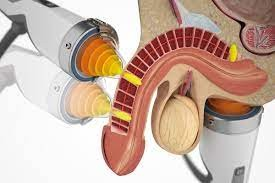Erectile dysfunction, or ED, is something a lot of guys deal with at some point. It’s more common than you might think and doesn’t just come with getting older. We’re talking millions of men who face this issue, so you’re definitely not alone.
ED can be a sign of other health problems, which is a key reason not to ignore it. Sometimes it’s about what’s going on in your body, like blood flow issues or hormone levels. Other times, stress and anxiety can have a big impact too. Life’s pressures hit hard, huh?
Lifestyle plays a crucial role here. Smoking, alcohol, and a lack of exercise can all make things worse. So can keeping irregular sleep patterns or eating too many unhealthy foods. These lifestyle factors often get in the way of performance.
Knowing when to see a doctor can be really important. If you’re experiencing ED consistently, that’s a signal to reach out to a healthcare provider. Sharing these concerns early helps rule out more serious health problems and can get you back on track.
Navigating Treatment Options: From Lifestyle Changes to Medication
There are plenty of ways to tackle erectile dysfunction, so it’s good to know your options. First up, lifestyle changes can have a huge impact. Think about what you eat, how often you exercise, and if you’re smoking or drinking.
When it comes to medication, you’ve probably heard about the big names like Viagra, Cialis, and Levitra. These oral meds are popular for a reason—they work for many people. Each comes with its own timeline and side effects, so picking the right one can depend on your lifestyle and medical history.
Before jumping into any medication, consultations are key. A healthcare provider will consider your health history and can help figure out what’s best for your situation. It’s not one-size-fits-all here. Plus, knowing the possible side effects helps you weigh up the risks against the benefits.
Finally, it’s crucial to get familiar with potential contraindications. If you’re on medication for other health issues, you’ll want to check how ED treatments might interact. This is where expert advice really steps in, ensuring safety and effectiveness.
Innovative Approaches: Advanced Therapies and Natural Remedies
Beyond the standard treatments, there are some pretty interesting approaches to handling erectile dysfunction. For instance, penile injections might sound intimidating but can be highly effective for some. Similarly, vacuum erection devices (VEDs) work mechanically to get things going and are worth considering.
Testosterone therapy is another road that might be beneficial, particularly if your levels are on the lower side. It’s important to monitor how your body responds, as this treatment isn’t for everyone. Proper medical guidance can help here, and it’s all about finding what fits your needs best.
Prefer going the natural route? Some supplements and herbal remedies claim to help. However, it’s essential to proceed with caution and ensure they’re safe and won’t interfere with anything else you’re taking. Natural doesn’t always mean risk-free.
Let’s look at alternative therapies like acupuncture. A bit different from conventional routes, it focuses on restoring energy balance and has seen success for some individuals. Tying these therapies with lifestyle changes might pack a punch that’s stronger than you expect.
Making Informed Decisions: Collaborating with Healthcare Providers
Choosing the right treatment isn’t just about picking a pill or a device; it’s about having an open dialogue with your healthcare provider. This means getting comfortable asking questions and sharing any concerns you might have about the options on the table.
Counseling plays a big part in managing erectile dysfunction, especially if stress or anxiety is a factor. Talking things out with a professional can offer some serious benefits and might even complement other treatments you’re trying. Exploring this route can be as important as the physical treatments.
The treatment journey is unique to each person, so tailoring it to fit your specific needs makes all the difference. Work with your healthcare provider to mix and match lifestyle changes, medications, and therapies. Tailoring a treatment plan that’s just for you is the aim here.
One last, but equally important, aspect is understanding the finances involved. Check with your insurance to see what’s covered for your treatment plan and prepare for any potential costs out-of-pocket. Keeping this in mind helps make the process smoother and less stressful.

